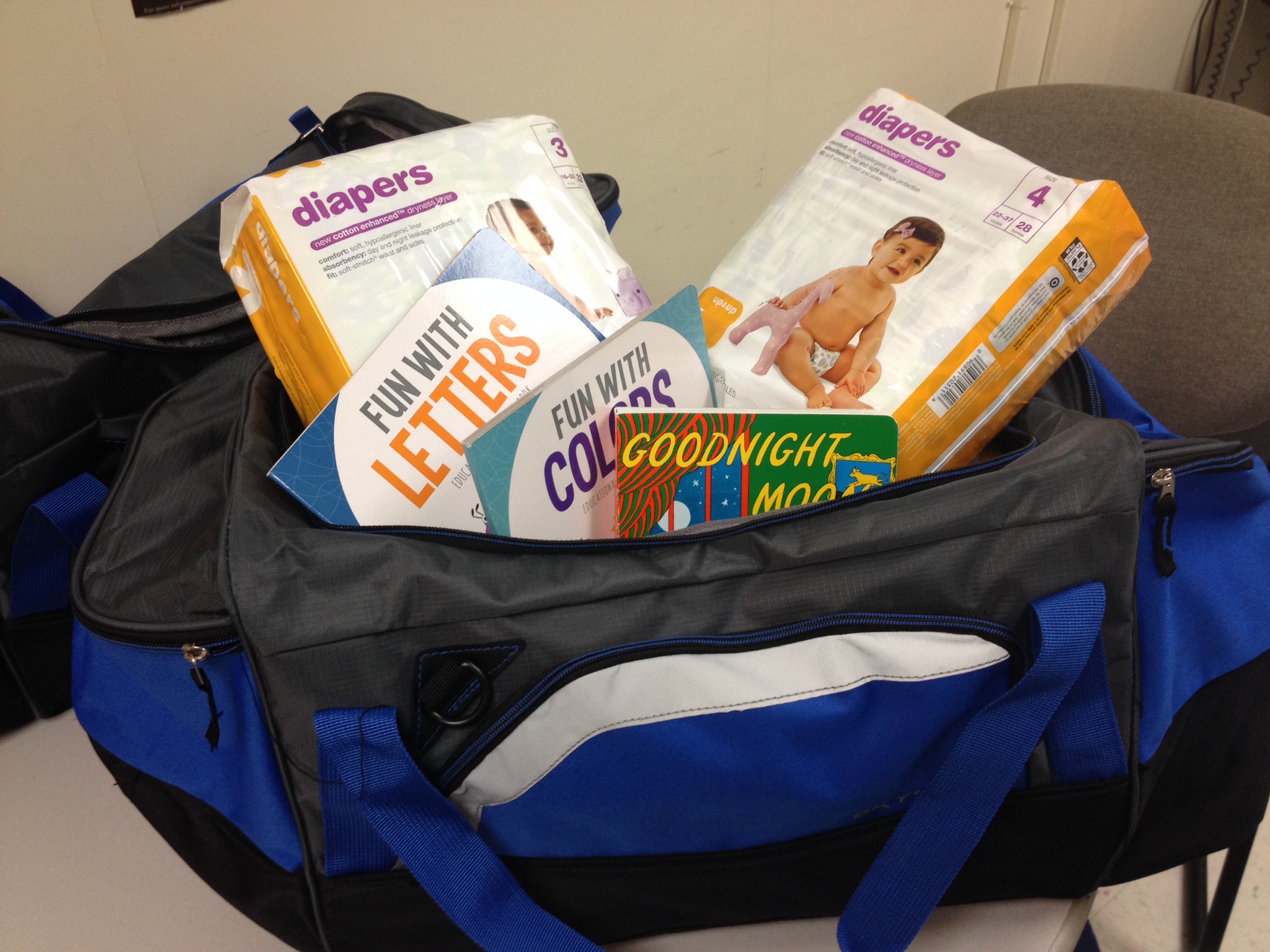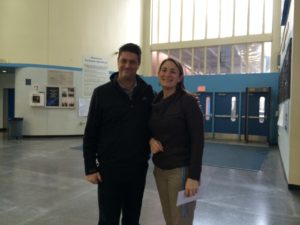
For most teenage boys, the sporty duffle bag pictured above would be filled with a uniform, dirty socks, some notebooks…anything but what you see: diapers, wipes, a copy of Good Night Moon and other board books. But this duffle bag isn’t for just any teenage boys; this Dads Kit was given to each of the young men attending the final session of The Fatherhood Project’s Teen Dads Program at Boston English High School, a collaboration with Communities In Schools.
On Tuesday, May 12th, the TFP Teen Dads Program at Boston English High School held its final session of the year. Beginning in December, the group of young dads met bi-monthly to receive support, fathering skills and resources. Participants also received case management support from the Communities in Schools school-based site coordinator as needed. In Tuesday’s final session, each teen said a few words of appreciation for each other and the group. The common theme from the dads was best said by a young man, 18, with twin 7 month old daughters:
“I appreciate you guys being here and having a place to come to get advice, and be listened to…otherwise I would keep it all inside because I don’t have anyone else I can talk with about fatherhood.”
In the concluding takeaway exercise, the young dads discussed the “Three things I need to know about my child at all times” checklist:
- What allergies does my child have and are they taking any medication now?
- Who are my children with, and where are they? (With mom? At daycare? Etc.)
- What are my children’s sleeping and eating routines?
This checklist was written on a business card and each father took a photo of it with his cellphone for safe keeping. The purpose of the exercise is to teach the young men that even when they are not with their children, they are fathering. An essential aspect of parenting is taking responsibility and being knowledgeable about their children every day. This simple checklist also serves as a connection point with their children, one of many small, invisible threads.
TFP’s Teen Dads program uses a co-facilitated group model provides these young men with a safe, educational, and positive place to learn to be a father while being with others going through similar experiences. Their children benefit from the fathers’ confidence and competence which promotes more emotional engagement.



